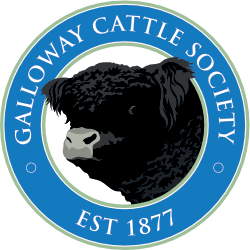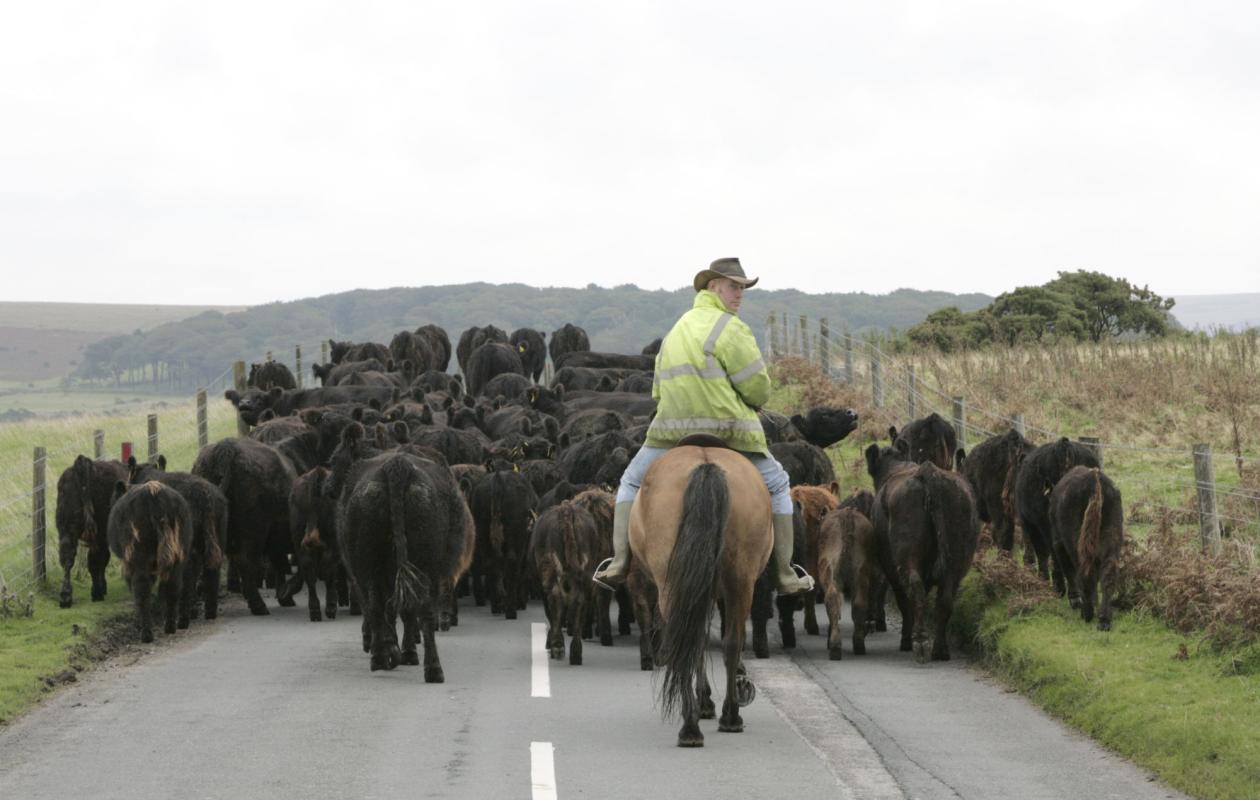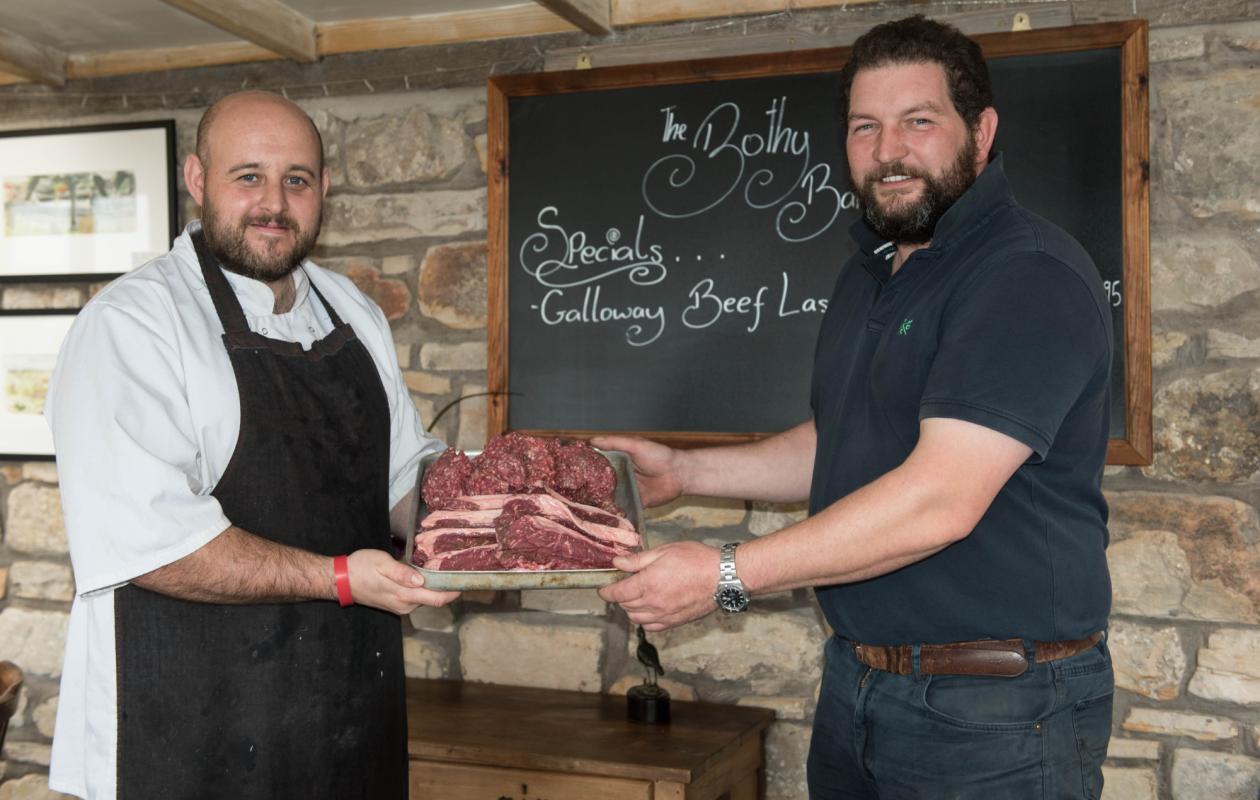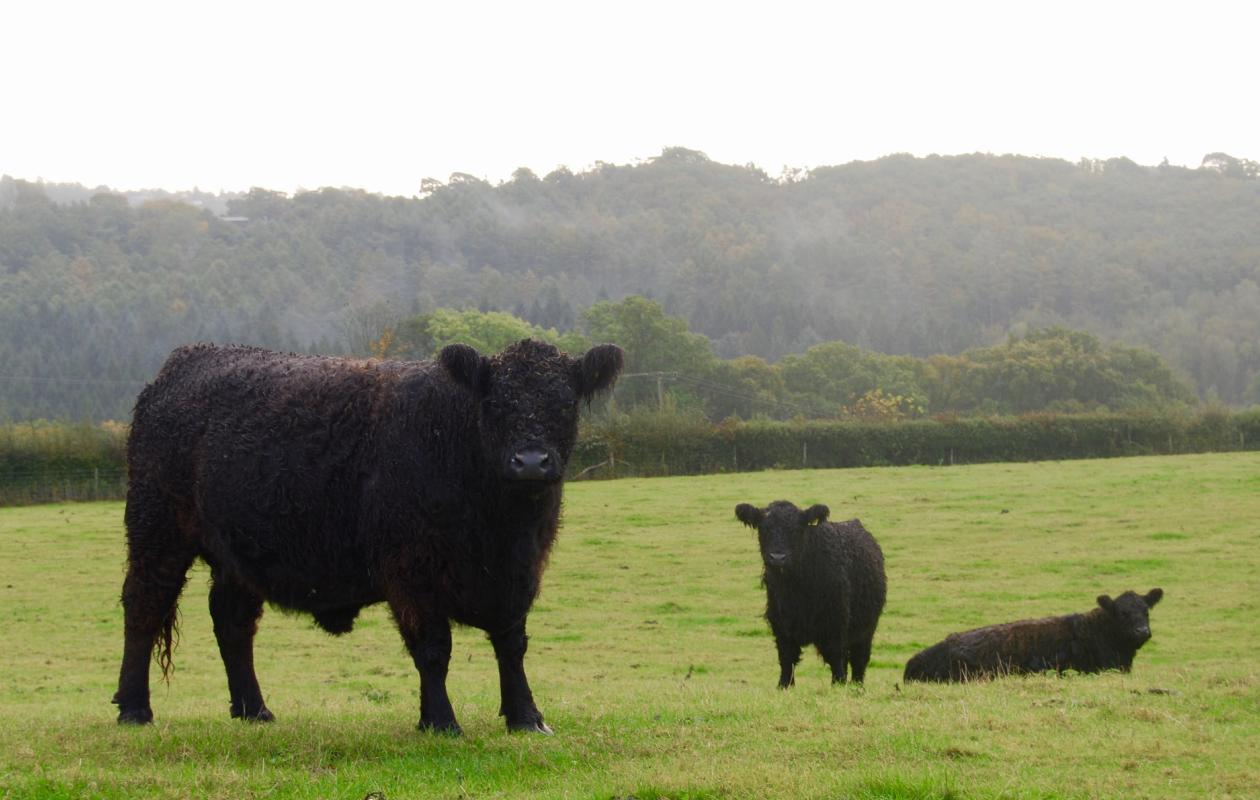Eskdalemuir, in Dumfries and Galloway, may be in one of the most southerly corners of Scotland, but its unusually cold - and wet - climate is ideal for growing trees and Galloway cattle.
The Galloway is proving to be the ideal choice for a beef herd established 10 years ago in the heart of the Esk Valley at Clerkhill Farm, Eskdalemuir, so much so that numbers are being expanded to 100 cows.
Winters in Eskdalemuir are unusually cold for Scotland and rainfall is high totaling around 1,600mm in a typical year so it is not surprising the valley is well suited to commercial forestry.
Clerkhill with 1,800 acres of hill ground running up to 1,000ft and down to valley bottom pastures was bought by Eskdalemuir Forestry 14 years ago.
Ben Edmondson, from Penrith, who began working at Eskdalemuir planting trees, was initially offered a job working on the farm and over the years assumed increasing responsibilities to now having sole responsibility for managing the farm - despite having no agricultural background - and also for establishing the Galloway herd.
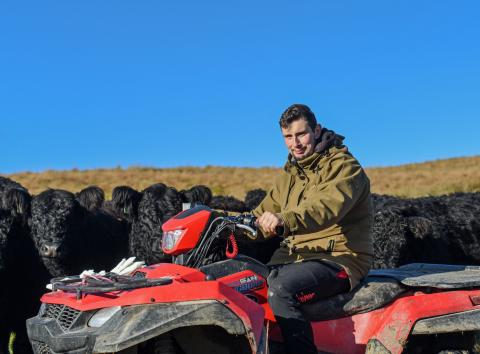
Now, largely taught by hands-on experience and an SVQ Level 2 and 3 in Agriculture at Barony College while working on the farm, he is managing the herd and its breeding policy as well as the farm’s breeding sheep - and he has never looked back on making the move.
“The Galloways just thrive here out on the hill”
“The Galloways just thrive here out on the hill. They pay their way - they don’t get a second chance if they don’t get in calf. So we’re expanding the numbers to run on extra land that has been purchased,” said Ben.
Sold on the breed, Ben added: “If there’s anyone looking at getting into an easy keeping, hardy breed of cattle I’d encourage people to look into Galloways.”
In the autumn of 2023 the neighbouring 400 acre Raeburnfoot was purchased allowing the successful Galloway cows to be expanded.
The farm also carries a flock of 760 North Country Cheviot ewes which are all bred pure and sheep numbers will be expanded on the increased acreage.
Previously, the farm had a flock of 1,200 ewes and a shepherd was also employed. Now all the cows calve outside and the lambing is also outdoors which makes it possible for Ben to run the livestock on his own with additional help when required.
“The heifers are first to calve at three years old inside from the last week of February and the cows start calving from mid-March outside in a lower-lying, sheltered area. The majority of the herd calves in a six week period before the lambing starts on April 10,” said Ben.
“The Galloways are very fertile and they are easy to get back in calf again. The bulls run with the cows on the hill all summer but all their work is done in the first six or seven weeks. Last year the 60 cows produced 60 calves and they have all thrived.
“We calve the heifers a cycle earlier to give them that extra bit of time to take back to the bull the 2nd time round and also so I can just focus on them before the cows on the hill start calving.
“They are a low maintenance cow which survives without problem outside all winter without much feed”
“The Galloways are very long lived and we have 12 year old cows still breeding. They are a low maintenance cow which survives without problem outside all winter without much feed - it’s expensive having cows in sheds. They are well-suited to the climate in Eskdalemuir.” The farm can carry a medium sized cow which has the added benefit of enhanced cull prices.
The outwintered cows are fed silage and cow rolls in the run-up to calving with snow generally expected after Christmas.
They are on the hill until February when they are brought down to calve in two different groups where they are close to the handling pens which helps ease of management. They are checked morning and night.
“I rarely see them calving - they often go into the rushy ground to calve. Then it’s a case of finding the calf to tag it and check it is OK. The Galloways are good mothers with plenty of milk. The cows generally are quiet after calving, although the odd one is quite protective. I’m going round the cows on my own so I’m very quiet with them which helps their temperament,” said Ben.
The herd’s foundation females - six cows with calves at foot and in calf - were purchased from Dorothy Gault’s Klondyke herd managed by Scott McKinnon until his retirement in 2023 at Moniaive, Thornhill, in Upper Nithsdale, which markets its Galloway beef through its own farm shop at Houghton Hall Garden Centre, Carlisle.
The herd has reached its current number through breeding using a Balgray and a Trolosse stock bull and it is now closed to any new female bloodlines. New bloodlines will be brought in to the herd with the purchase of a new stock bull at Castle Douglas in February. The optimum number of cows that Ben can manage on his own is expected to be between 90 and 100.
This year 69 females have gone to the bull this year and a further 26 heifers which will enter the herd next year will bring numbers up into the 80s
Two Clerkhill bulls, by Trolosse Impeccable son Orion of Balgray, were sold for the first time in 2023 at Castle Douglas in February. Clerkhill Rango, reserve two year old bull in the show, made 3,000gns and Clerkhill Ranger made 2,000gns
One bull by Outlook of Trolosse is earmarked for sale in Castle Douglas next spring, coming up two years old. Once numbers have been reached, breeding females will also be sold.
Ben has been flying the flag for the herd and the breed at LiveScot at Lanark where he has lifted the top tickets in the junior bull classes in the last two years, helped by show supremo Dennis Gall, of Lockerbie. He has received a lot of help and encouragement from other Galloway breeders.
All the Galloway bullocks have been sold privately to the same finisher for a number of years. The bullocks are weaned around Christmas time and they are housed until the end of April when they are put out to grazing before being sold in August before the grass growth starts to slow.
In the last few years, a re-seeding policy has established more productive lower-lying pastures for silage ground and lambing
The Cheviot flock was established a few years after the Galloway herd with the purchase of 350 ewes from Forest Irving, of Whitchesters, Hawick, when he retired.
North Country Cheviot two shear tups are sold through Lockerbie Mart and the autumn sale was the best yet for the farm with rams selling to a top price of £3,200 and an average of £1,550 for eight.
